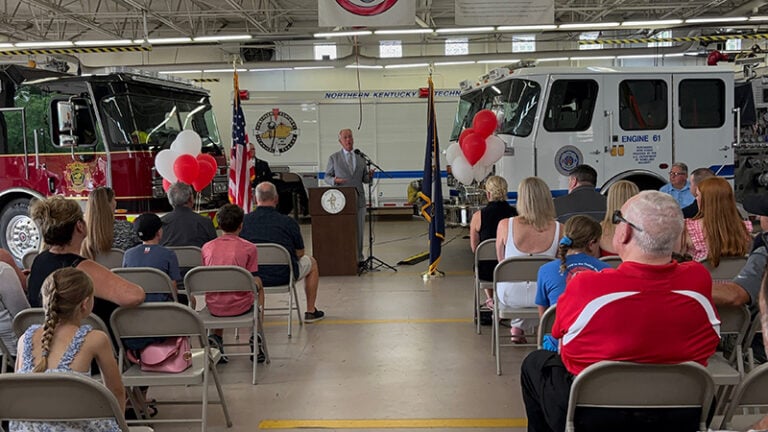By Melissa Patrick
Kentucky Health News
Hurricane Helene brought power outages across the state, which means Kentuckians need to be mindful of food safety when it comes to their refrigerated and frozen food items. Otherwise, there is a risk of foodborne illness, otherwise known as food poisoning.
The most common symptoms of food poisoning are vomiting, diarrhea, stomach pain or cramps and fever. If these symptoms become severe, the Centers for Disease Control and Prevention says it’s important to see a health care provider.

The U.S. Food and Drug Administration says food poisoning usually occurs within one to three days of eating the contaminated food, but can also occur within 20 minutes or up to six weeks later.
Here are some food safety tips from FoodSafety.gov:
How long does food last in a refrigerator after a power outage?
• Food is considered safe to keep for four hours after a power outage in a properly working refrigerator with the door kept shut as much as possible.
What about the freezer?
• A full freezer will hold its temperature for 48 hours and a half-full freezer will hold its temperature for 24 hours with the doors closed as much as possible.
What to do during a power outage to minimize food loss:
• Freeze refrigerated items that are not needed immediately to keep them at a safe temperature longer.
• Keep the refrigerator and freezer doors closed to maintain the cold temperatures.
What to do when the power is back on:
• Check the temperature inside the refrigerator and freezer and make sure it is 40 degrees Fahrenheit or below.
• If the temperature in the freezer reads 40 degrees Fahrenheit or below, or the food still contains ice crystals, the food is safe and may be refrozen.
• Throw out any perishable food in your refrigerator, such as meat, poultry, lunch meats, fish, dairy products, eggs and any prepared or cooked foods that have been above 40 degrees Fahrenheit for four hours or more.
• Fresh fruits and vegetables are safe as long as they are still firm and have no evidence of mold or sliminess.
• Never taste food to determine if it is safe to eat.
• And most importantly, “When in doubt, throw it out!”
How to prepare for the next power outage:
• Make sure there are appliance thermometers in the refrigerator and freezer.
• Have coolers on hand to keep essential items cold if the power will be out for more than four hours.
• Freeze containers of water and gel packs to help keep the food at 40 degrees Fahrenheit or below.
• Other advice includes having about three days of non-perishable food on hand in case of an emergency, refilling medications before the bottle is empty and making sure to have working flashlights in the home.

U.S. Food and Drug Administration graphics

















